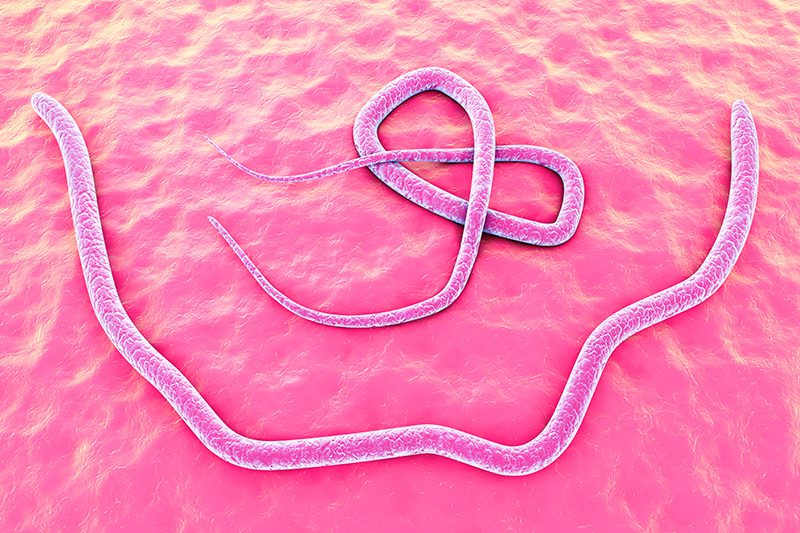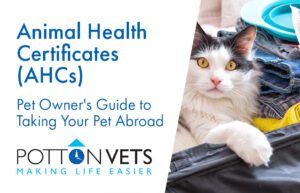Where they come from and what to do
Even outwardly healthy looking animals can have worms, and they can cause suffering, illness and sometimes even death. Some of the diseases they carry can also be transmitted to humans, so it’s really important to worm regularly regardless of whether you think your pet has worms or not.
What kind of worms can infect my cat or dog?
Roundworms and tapeworms are the most common threats. They can also have hookworms and whipworms, and these are more common in dogs than cats.
Lungworm is becoming a greater problem – although happily it only infects a small percentage of animals at the moment – and this is only transferred to your pet through ingesting a slug or snail. Lungworm tends to be a localised problem, so it’s worth talking to your vet to find out if this is a problem near you.

I haven’t been regularly treating my pet for worms and now I’m worried they are infected. What are the signs?!
- You may see worms in faeces or vomit, or around your pet’s bottom.
- Your pet might have lost weight recently
- Their fur might have changed and become dry and coarse
- They might have an increased appetite and have diarrhoea
- They may appear weak
- In severe cases, infected puppies and kittens can have a distended abdomen (also sometimes known as a pot belly)
How does my pet catch worms?
Your pet is exposed to worms in a number of ways and it’s almost impossible to prevent exposure.
Fleas can carry tapeworm eggs, so it’s essential that a continuous flea protection programme runs alongside a worming programme.
Your pet may well come in to contact with other infected animals – wild animals or domesticated – who use the same outdoor areas as your pet. They might also inadvertently eat the larvae or eggs of worms in faeces or contaminated grass, and can also get them from eating raw meat. If you have a dog who enjoys the occasional carcass in a hedge or a juicy slug, or a cat who hunts, kills and eats, then they will probably be exposed to the worms these wild animals undoubtedly host.
Female roundworms can produce 200,000 eggs in just one day. These eggs are protected by a hard shell, and this means they can survive in soil for years.
Can I catch worms from my pet?!
Yes, unfortunately you can and the diseases they transmit can be very dangerous to humans, particularly from the roundworm. The eggs can hatch in the human intestine, then the immature worms can travel to various tissues in the body including eyes and brain. Serious infections can result in damage to these organs and can cause blindness.
Basic cleanliness measures such as washing hands before meals, leaving shoes at the door, and avoiding the faeces of animals whilst out (and bagging and binning those of your own!) should all help keep you safe.
How can I stop my pet getting worms?
A thorough and continuous worming programme from an early age is the best way to ensure your pet and your family are safe from worms. It is also a good idea to make sure your pet’s water, food bowls and bedding are regularly cleaned and disinfected, using a disinfectant suitable for use around animals.
My dog/cat is pregnant. Should I continue to worm them?
Pregnant cats and dogs who have worms pass them on to their puppies and kittens whilst they are still in the womb as the microscopic larvae migrate through the mothers tissues in to the womb.
Roundworm larvae can also given to the puppy or kitten from the mother’s milk. They then travel to the intestine where they can grow up to five inches long, so worms can be a really serious issue for a tiny animal.
Most wormers are only effective on adult worms existing in the intestinal tract, and wouldn’t kill off larvae lurking in other tissues ready to migrate to the womb during pregnancy. If you are planning on breeding from your animal it’s essential to make sure they are continuously wormed before pregnancy occurs.

Always speak to your vet before administering any drugs such as wormers to pregnant animals so they can recommend a suitable product use during this time.
Remember…
Pet Health Club membership includes a parasite control program.
Including comprehensive flea, external parasite and worm control and also lung worm control in dogs.
To find out more and book an appointment, call the practice on 01767 260007


